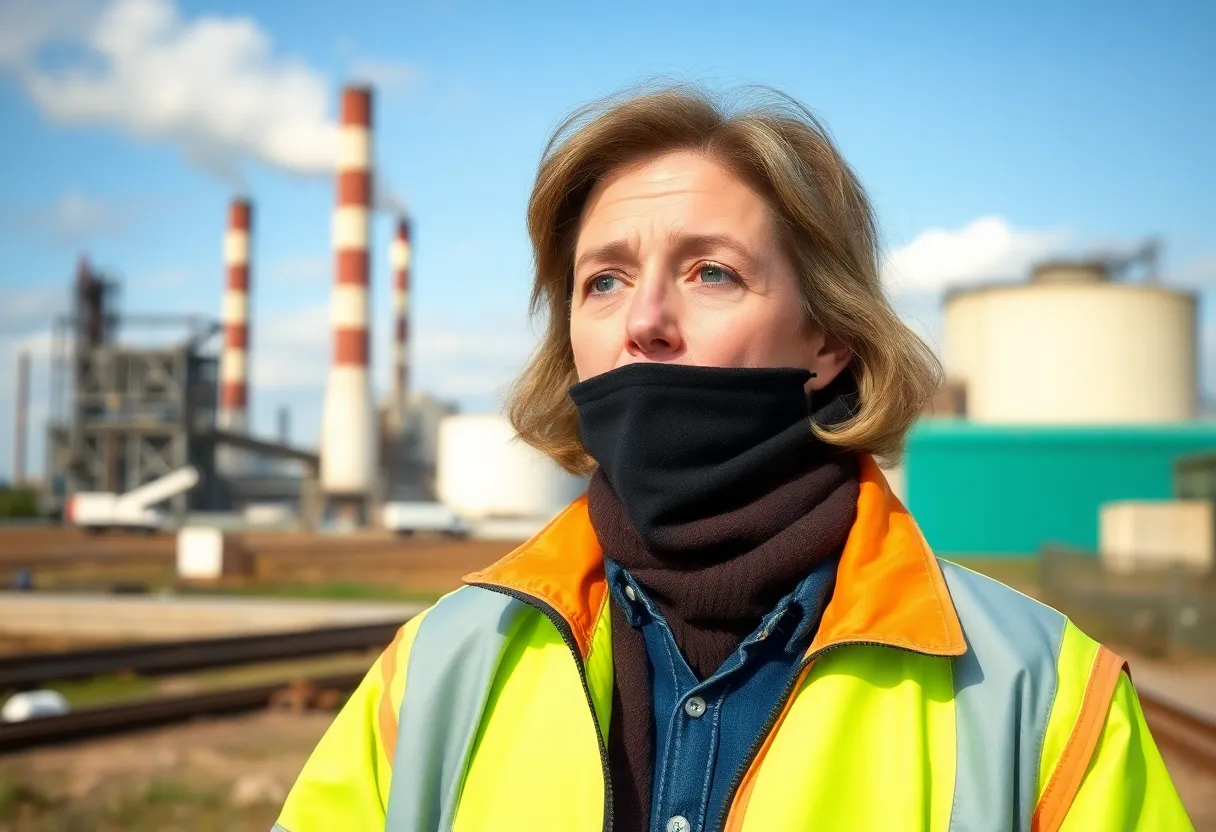News Summary
The EPA is reexamining its 2024 ban on chrysotile asbestos, a move that worries public health advocates amid lobbying from industrial interests.
EPA Reconsiders 2024 Ban on Chrysotile Asbestos
In a stunning twist that has alarmed public health advocates, the Environmental Protection Agency (EPA) has confirmed it is reexamining its significant 2024 ban on chrysotile asbestos, the last legally permitted form of asbestos in the United States. This move comes in response to a petition from the Texas Chemistry Council, highlighting the ongoing tug-of-war between industrial interests and public health.
A Lengthy Review Process Ahead
The EPA’s decision to reconsider the ban will initiate a notice-and-comment rulemaking process expected to last about 30 months. This extended timeline raises questions about the potency of regulations meant to safeguard public health.
Chrysotile Asbestos: The Controversial Substance
Chrysotile asbestos is primarily utilized in the industrial processes of making chlorine, as well as in essential automotive components such as brake blocks and gaskets. Following the ban instated by the Biden administration, which declared the action a pivotal moment for chemical safety, the U.S. joined the ranks of over 50 other countries that have already prohibited the substance. Asbestos exposure is linked to more than 40,000 deaths annually in the U.S., contributing to serious health issues such as lung cancer, mesothelioma, ovarian cancer, and laryngeal cancer.
Concerns from the EPA’s Leadership
Watchdogs within the EPA have voiced concerns that some aspects of the original ban may have exceeded necessary measures to eliminate unreasonable risks. The ban, enacted under the Toxic Substances Control Act—which had been expanded in 2016—aimed to provide robust protections against the dangers of asbestos.
Pushback from Advocacy Groups
Critics of the reconsideration assert that this move panders to industry lobbyists at the expense of public health. Past attempts by the EPA to loosen restrictions on asbestos have fuelled skepticism, particularly a 2018 rule allowing for the introduction of new asbestos-containing products under specific conditions.
Past Controversies and Regulatory Inconsistencies
Notably, former President Trump once suggested that the movement against asbestos bans stemmed from a conspiracy linked to organized crime, further muddying the waters around this contentious issue. Presently, the current EPA leadership, under Administrator Lee Zeldin, has embarked on numerous deregulatory actions, raising alarms among health advocates.
Statistics on Asbestos Violations
Recent years have exposed alarming cases of asbestos mismanagement, particularly in Michigan, where companies have been fined for improper handling of asbestos. The consequences have varied significantly; while some businesses faced steep penalties, the Michigan Occupational Safety and Health Administration (MIOSHA) has at times assessed much lower fines, reflecting inconsistencies in regulatory enforcement.
Financial Fallout
Since 2009, there have been over $2 million in settlements, fines, or restitution related to asbestos violations, indicating both the persistent dangers associated with the material and the necessity for stringent adherence to safety regulations.
A Call to Action
As the EPA begins its review of the chrysotile asbestos ban, public health advocates are urging the agency to prioritize safety over industrial interests. With the stakes so high, the outcome of this reconsideration could shape the trajectory of asbestos safety regulations for years to come. The looming question remains: will the EPA choose the path of public health, or will industry lobbying prevail?
Deeper Dive: News & Info About This Topic
HERE Resources
Barretts Minerals: Bankruptcy Judge Questions Asbestos Levels in Talc from Montana
Philadelphia School District Faces Charges Over Asbestos Violations
Government’s Sharp Turn on Asbestos Ban Sparks Outrage
The School District of Philadelphia Faces Unprecedented Criminal Charges for Asbestos Violations
Chrysotile Asbestos Ban Faces Re-examination Under EPA
The Importance of Early Screening for High-Risk Groups
Family Seeks Justice After Tragic Mesothelioma Diagnosis
Major Changes Ahead in Surry County Schools: Retirements and Infrastructure Remediation
Violation Alert: Patten Town Faces Consequences Over Asbestos Removal Blunder
The Future of Asbestos: A Revolutionary Decarbonization Project in Quebec
Additional Resources
- KLFY: Asbestos Ban Being Revisited by the EPA
- Wikipedia: Asbestos
- Click On Detroit: EPA Will Revisit Biden Era Ban on Asbestos
- Google Search: Asbestos Regulations
- Detroit News: Asbestos Material Remains Mystery
- Google Scholar: Asbestos Health Effects
- Free Press: EPA and Michigan Asbestos Regulations
- Encyclopedia Britannica: Asbestos



















